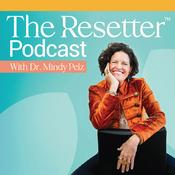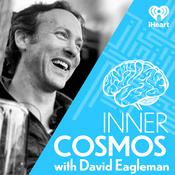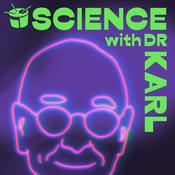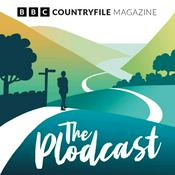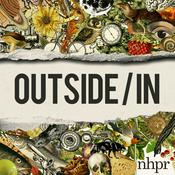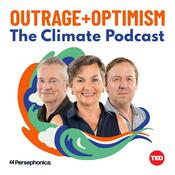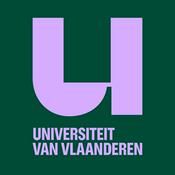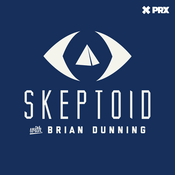234 episodes
Debriefing Teacher Judgments (with the Canberra Meta Debrief Club) | Curious Now 28
12/2/2026 | 43 mins.Thank you so much to our Australian hosts including Nathan Oliver and the Canberra Region Debriefing Club, a community of skilled, thoughtful teachers who made this virtual visit a deep and helpful conversation: https://podcasts.apple.com/us/podcast/the-center-for-medical-simulation/id1279266822
In this week’s episode, Jenny joins the Canberra Region Meta Debrief Club to talk about moments in our teaching where our judgment flares up and we start to get indignant with our colleagues and our learners, even ones who we care deeply about!
This wonderful group of participated in a meta-debriefing of their experiences with difficult judgments during their teaching and personal lives that helped us understand what’s happening to us when we flare up from our judgments.
Workout of the week: When you find yourself judging, or even experiencing heightened emotions, ask yourself, what is the standard I’m holding here?
Leadership Coaching from Jenny Rudolph: https://harvardmedsim.org/personal-leadership-coaching-with-jenny-rudolph/
#healthcaresimulation #nursing #medicine #debriefing- Working from a challenge by Eve Purdy, this week Jenny is focusing on the edge of her expertise and the work she’s currently doing for herself, which is self-leadership using internal family systems.
What this does is cast on floodlights onto your reactions, allowing you to understand the parts of yourself that are in conflict and that are putting you into a reactive mode. So who is the part of Jenny that pops out and turns her prickly and drops the Basic Assumption during meetings and other conflicts?
Workout of the week: Identify and name a part of yourself that keeps popping up regularly.
Apple Podcasts: https://podcasts.apple.com/us/podcast/the-center-for-medical-simulation/id1279266822
Leadership Coaching from Jenny Rudolph: https://harvardmedsim.org/personal-leadership-coaching-with-jenny-rudolph/
#healthcaresimulation #nursing #medicine #debriefing - A very common dilemma—you can see something that you know can be done better, but you’re struggling with how to say that to the person doing it without damaging your relationship. Why does it keep happening that we hide our expert judgment about the situation?
Leadership Coaching from Jenny Rudolph: https://harvardmedsim.org/personal-leadership-coaching-with-jenny-rudolph/
Apple Podcasts: https://podcasts.apple.com/us/podcast/the-center-for-medical-simulation/id1279266822
#healthcaresimulation #nursing #medicine #debriefing Pushback and Interruption as Learning Cues (with Walter Eppich) | Curious Now 25
23/1/2026 | 34 mins.We’re joined by Walter Eppich to talk about how learning happens in conversations. Specifically, Walter discusses how he watched a surprisingly successful call by a junior doctor that brought a surgeon running from the OR down to the ED to see their patient. Doctors in the early stages of their career tend to ramble when giving reports—including every piece of information that they know in the hopes of including something relevant. How do we learn to communicate with other healthcare professionals in a way that makes your current problem their most important problem? Why do we have every junior doctor go through phone call failure rather than explicitly teaching the structure of talk that we know works, and that they’ll be steered towards by explicit feedback in the calls?
Apple Podcasts: https://podcasts.apple.com/us/podcast/the-center-for-medical-simulation/id1279266822
Leadership Coaching from Jenny Rudolph: https://harvardmedsim.org/personal-leadership-coaching-with-jenny-rudolph/
#healthcaresimulation #nursing #medicine #debriefing- Agency is the Power to Act | CMS Book Club Live at #IMSH2026
Roxane Gardner and Grace Ng react to Shawn Kanungo’s keynote talk on innovation at #IMSH2026. Watch here: https://youtu.be/tbUfYHhM3kE
Roxane and Grace both felt that the content of the talk was surprisingly supportive, especially for an ‘innovator’ who was speaking about the role of AI in the changing industry. Much in the way that we talk at CMS about not imposing simulation from the top down as a prepackaged education solution, but instead partnering with teams to learn what they need to help them feel ready and then using simulation as a tool among many to get them there, Shawn helped to position agentic and generative AI in the same way.
Grace was pleased to hear the discussion of agency, and tools that empower people to do things rather than replacing them—her PhD work on nursing agency and how nurses can be empowered to activate rapid response teams, and that seemed very relevant to the moment as we figure out how these tools will shape our work.
Listen and subscribe on Apple Podcasts: https://podcasts.apple.com/us/podcast/the-center-for-medical-simulation/id1279266822
#curiousnow #healthcaresimulation #medicine #nursing
More Science podcasts
Trending Science podcasts
About The Center for Medical Simulation
A nurse preceptor has just watched a trainee commit a serious error despite hours of lecture, reading, and hands on training. In spite of herself, she starts to heat up, much like the more severe clinical educators who trained her years ago. “Why can’t you just get this right?”
An ICU attending asks her resident to call her if a patient’s hematocrit drops under a certain value. Despite this agreement, and despite the patient deteriorating, the resident never calls. “Are you an idiot? Why didn’t you call me?”
In these moments, how do we reset ourself to a place of care, curiosity, and compassion? How do we model a better culture of learning? How do we have our judgment, instead of our judgment having us?
In “Curious Now with Jenny Rudolph,” a social scientist takes on the hidden structures that shape our behavior, culture, communication, and learning in healthcare.
In this interactive podcast, Jenny Rudolph, PhD, FSSH, will help listeners approach the thoughts, feelings, and judgments underlying their reactions in a psychologically safer manner, helping us to better connect with curiosity and compassion to the people around us, especially when we feel that they’ve done something “wrong.” This podcast will include weekly challenges to examine your own thinking, including follow-up with listeners and experts about their experience on the journey to Good Judgment.
Jenny Rudolph has made a career exploring what makes clinicians, healthcare organizations, and health professions training programs tick. Underneath the surface of intelligent, capable people who care about doing their best are hidden patterns that interfere with how they perform. Hierarchy, ego, communication glitches, resilience, power, professional learning, and how learning happens all flow downstream into creating actions that work and actions that don’t.
Jenny found out the hard way that being too certain can get you in trouble. Demoted from third to second grade for poor academic performance when she arrived in Jaipur, India as an eight-year-old, she realized she had better get curious about how her new school and culture ran, and that curiosity has remained with her ever since.
Jenny now works with clinicians around the world to help them develop their own love of that little dopamine drip of rewarding surprise when you find out something new about your colleagues and how they think. Whether trying to figure out a diagnosis, discovering what a learner is thinking, or upping your own clinical mastery, getting Curious Now is the solution.
Curious Now on Spotify: https://open.spotify.com/show/72gzzWGegiXd9i2G6UJ0kP?si=890ed4b02bfe4838
Curious Now on Apple Podcasts: https://podcasts.apple.com/us/podcast/the-center-for-medical-simulation/id1279266822
--------------------
Founded in 1993, the Center for Medical Simulation was one of the world's first healthcare simulation centers and continues to be a global leader in the field. Simulation training at CMS gives healthcare providers a new and enlightening perspective on how to handle real medical situations. Through high-fidelity scenarios that simulate genuine crisis management situations, the CMS experience can open new chapters in the level of healthcare quality that participants provide. Find out more and apply for CMS simulation workshops at www.harvardmedsim.org.
Podcast websiteListen to The Center for Medical Simulation, Science Weekly and many other podcasts from around the world with the radio.net app
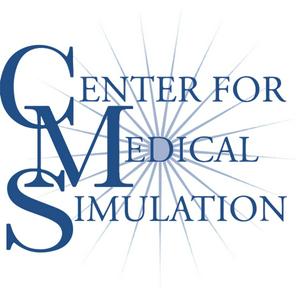
Get the free radio.net app
- Stations and podcasts to bookmark
- Stream via Wi-Fi or Bluetooth
- Supports Carplay & Android Auto
- Many other app features
Get the free radio.net app
- Stations and podcasts to bookmark
- Stream via Wi-Fi or Bluetooth
- Supports Carplay & Android Auto
- Many other app features


The Center for Medical Simulation
Scan code,
download the app,
start listening.
download the app,
start listening.





